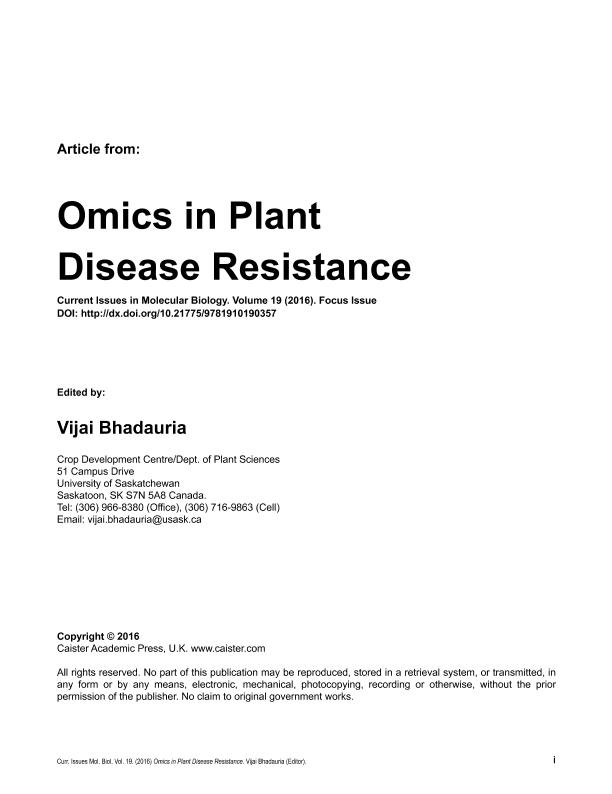Artículo
Omics approaches for the engineering of pathogen resistant plants
Fecha de publicación:
12/2015
Editorial:
Horizon Scientific Press
Revista:
Current Issues In Molecular Biology
ISSN:
1467-3037
Idioma:
Inglés
Tipo de recurso:
Artículo publicado
Clasificación temática:
Resumen
The attack of different pathogens, such as bacteria, fungi and viruses has a negative impact on crop production. In counter such attacks, plants have developed different strategies involving the modification of gene expression, activation of several metabolic pathways and posttranslational modification of proteins, which culminate into the accumulation of primary and secondary metabolites implicated in plant defense responses. The recent advancement in omics techniques allows the increase coverage of plants transcriptomes, proteomes and metabolomes during pathogen attack, and the modulation of the response after the infection. Omics techniques also allow us to learn more about the biological cycle of the pathogens in addition to the identification of novel virulence factors in pathogens and their host targets. Both approaches become important to decipher the mechanism underlying pathogen attacks and to develop strategies for improving disease-resistant plants In this review, we summarize some of the contribution of genomics, transcriptomics, proteomics, metabolomics and metallomics in devising the strategies to obtain plants with increased resistance to pathogens. These approaches constitute important research tools in the development of new technologies for the protection against diseases and increase plant production.
Palabras clave:
Omics
,
Plant Pathogen
,
Resistance
Archivos asociados
Licencia
Identificadores
Colecciones
Articulos(CEFOBI)
Articulos de CENTRO DE EST.FOTOSINTETICOS Y BIOQUIMICOS (I)
Articulos de CENTRO DE EST.FOTOSINTETICOS Y BIOQUIMICOS (I)
Citación
Gomez Casati, Diego Fabian; Busi, María Victoria; Pagani, María Ayelén; Bhadauria, Vijai; Omics approaches for the engineering of pathogen resistant plants; Horizon Scientific Press; Current Issues In Molecular Biology; 19; 12-2015; 89-98
Compartir




